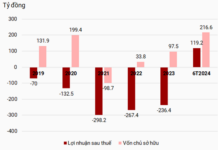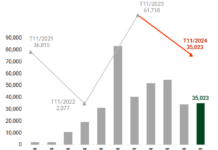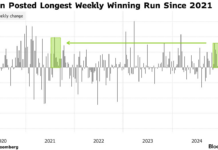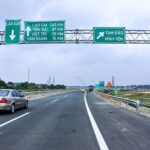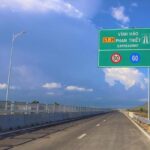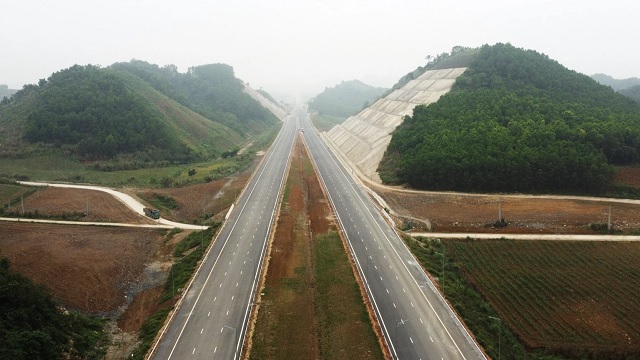
Charging tolls is a way to generate capital for the maintenance and development of new expressways.
|
According to Article 50 of the Law on Roads, the State collects tolls for the use of expressways that are owned and managed by the State, including those invested by the State and those transferred to the State for management. The collected tolls will be submitted to the State budget and invested in the maintenance, repair, and upgrade of expressways.
According to the National Defense and Security Committee, toll collection on state-invested expressways does not lead to “double charging” as road users can choose to use the parallel national highways for free.
The government will detail the conditions and timing of toll collection for expressway use. Organizations that are granted toll collection and business concessions will also have to submit the collected money to the state budget. Only the toll revenue generated during the concession period is exempt from being submitted to the budget, excluding the revenue share that must be given to the State.
Prior to being stipulated in the law, the Ministry of Transport had proposed toll collection on several expressways invested by the State. Among these, there are nine expressways that the Ministry plans to collect tolls for five years. The Ministry explained that the toll rates would adhere to principles such as matching the interests and payment capabilities of users. After offsetting organizational costs, there should still be a surplus to contribute to the state budget. The revenue collected from expressways invested with budget funds will be returned to the state budget and prioritized for investment, management, and maintenance of road infrastructure.
According to the Vietnam Road Administration, in the next ten years, the capital investment demand for new expressways will reach nearly VND 240,000 billion, while the maintenance capital can only meet about 40%. The management and operation of expressways also face a shortage of skilled human resources. By 2030, 10,000 operation workers will be needed, and many project owners who are assigned to manage and operate expressways are limited in terms of expertise and lack high-level personnel. The arrangement of capital for expressway management and exploitation has not been timely and sufficient.
There are two options for expressway toll collection
To address these issues, the Law on Roads (effective from January 1, 2025) has introduced new regulations to mobilize resources for the construction, management, exploitation, and maintenance of expressways, including provisions allowing toll collection on state-invested expressways.
According to Mr. Bui Quang Thai, Director of the Vietnam Road Administration, the consistent view of the Ministry of Transport is that toll collection should only be implemented on expressways that offer service quality commensurate with the toll rates. The State’s toll collection on expressways is not for profit. Charging tolls is a way to generate capital for the maintenance and development of new expressways.
Regarding the implementation process, the Director of the Road Administration shared that the intelligent transportation system (ITS), including the automatic non-stop toll collection system, will be invested synchronously with the construction of expressways. Therefore, with the current infrastructure, there is no need to invest in toll stations.
“The question now is to choose between two forms of management, operation, and toll collection for expressways. The first is for the State to organize and implement toll collection itself. The second option is to grant the right to manage and collect tolls to private enterprises,” informed the Director of the Road Administration.
In the first form, the Road Administration, as the expressway asset management agency, will organize the toll collection itself. Through bidding, the Road Administration will select a contractor to provide toll collection services based on the automatic non-stop toll collection system platform. One drawback of this option is that it collects tolls in a gradual manner, and after deducting organizational costs, the remaining amount will be submitted to the state budget.
The second form involves bidding for the management of expressways through a business-management (O&M) contract. The investor will be responsible for toll collection, management, and maintenance of the expressway. The State sells the right to collect tolls on the expressway for a certain period and immediately receives a lump sum. While this option has many advantages, it may be less attractive to investors for expressways with low traffic volume.
In any case, the Vietnam Road Administration has a plan. If there are no investors participating, the State will step in and carry out the task, ensuring the provision of public services and continuity for users.
Regarding toll rates, the Vietnam Road Administration is studying various scenarios and making calculations to ensure a balance between the services provided and the toll rates. These steps will be carried out cautiously to avoid significant impacts on the CPI and logistics costs.
|
Expressways expected to be tolled Expressways currently in operation: Lao Cai – Kim Thanh, Hanoi – Thai Nguyen, Ho Chi Minh City – Trung Luong, Cao Bo – Mai Son, Mai Son – QL45, QL45 – Nghi Son, Nghi Son – Dien Chau, Cam Lo – La Son, La Son – Tuy Loan, La Son – Hoa Lien, Vinh Hao – Phan Thiet, Phan Thiet – Dau Giay, Ben Luc – Trung Luong, My Thuan 2 Bridge, and the two bridgeheads. Expressways under construction until 2025: Bai Vot – Ham Nghi, Ham Nghi – Vung Ang, Vung Ang – Bung, Bung – Van Binh, Van Ninh – Cam Lo, Hoa Lien – Tuy Loan, Quang Ngai – Hoai Nhon, Hoai Nhon – Quy Nhon, Quy Nhon – Chi Thanh, Chi Thanh – Van Phong, Van Phong – Nha Trang, Can Tho – Ca Mau. |
By: Nhật Quang
Increase ticket prices for 4 high-traffic express routes starting from 1st February
Starting from 00:00 on February 1st, Vietnam Expressway Corporation (VEC) has officially increased toll fees on four expressways invested and operated by the company.
Maximize speed on 8 highways to 90km/h
The Ministry of Transport has instructed relevant units to install signs raising the maximum speed from 80km/h to 90km/h for restricted four-lane expressways.











